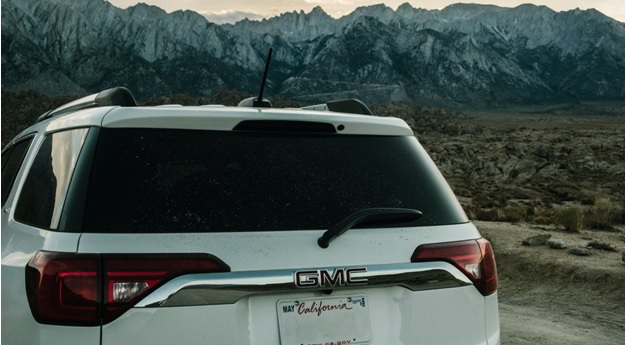 Loading... Please wait...
Loading... Please wait...Why Do Door Lock Actuators Fail? [And What Can You Do About It?]
Posted on 12th Apr 2022
You hit the unlock button on your keyfob and nothing happens. You open the door with the key, manually, and try the power unlock buttons. Still no dice.
You may have experienced door lock actuator failure. Back in the day, vehicle locks were intended to be locked and unlocked manually with keys. This is no longer the case.
Instead, the locks on modern vehicles contain small electronic devices that enable the locks to be latched or unlatched remotely or electronically.
It’s convenient when it works. When it doesn’t, you won’t be able to unlock the doors remotely until the issue is fixed. The issue may be the door lock actuator motor. Here’s what you need to know.
How the Door Lock Actuator Works
An electronic door lock actuator is a small electronic device contained within the door of a car near the door lock. It typically contains a latch mechanism that attaches to the door lock via cables or some other mechanical connector, as well as a sensor that alerts the system to whether the door is locked or unlocked. The actuator contains a motor that, when activated, either latches or unlatches the door lock by manipulating the mechanical links.
The actuator itself can be controlled remotely, usually either by the button on the keyfob or through the power switches on the inside of the door panel or on the center console.
Symptoms of a Failing Door Lock Actuator
While there are many factors that can cause or accelerate door lock actuator failure, recognizing the symptoms of a problem is somewhat more straightforward. These are some of the more common signs that a door lock actuator is failing or may soon fail.
1.Slow or no response (either using the interior buttons or the keyfob)
One of the biggest signs of door lock actuator failure is the inability to lock the doors using the power locks. You will still be able to use the keys to manually lock the door, but the buttons or keyfob will no longer work.
2.Lock only moves partially when activated
Another sign of a weak actuator is one that is able only to partially lock or unlock the doors, or does so inconsistently.
3.Inconsistent or delayed response from the actuator
If the actuator works perfectly - some of the time - that’s cause for concern. A delayed response can also indicate an actuator that’s on the way out.
4.Locks will engage but not disengage (or vice versa)
Sometimes, a door lock actuator is able to lock the doors, but not unlock them. Occasionally, the reverse will be true - you can unlock the doors but not lock them. Manual operation will still work but not power locks.

5.Doors lock or unlock without active operation
A component of your door lock actuator may be failing or faulty if the door locks lock or unlock randomly without being activated by an operator. This can potentially happen whether the car is running or not.
6.“Door Open” warning light activates even when the doors are closed
If the “door open” warning lights come on even with the doors closed, there could be a problem with the door lock actuator sensor, although the door lock actuator motor may still work.
7.Sounds from inside the door
When operating the door locks electronically, buzzing or abnormally loud sounds may indicator problems with the gears inside the actuator motor.
How Do You Know If a Door Lock Actuator Is Bad?
Since the door lock actuator contains several parts, in order to fix the issue you may need to take the door cover off, check the mechanical links attached to the actuator and test the voltage available to the door lock actuator motor.
If the mechanical links are intact, and there is voltage at the actuator, then there is something wrong with the actuator and it should be replaced. (If there is no voltage, the problem is separate and electrical). There are several factors that can cause a door lock actuator to fail.
One is corrosion. Over time, moisture, oil, dust, and debris can enter the actuator or the mechanical links. These will react to form rust, which will weaken the mechanical links and can cause failure of the actuator.
Accidents and other physical stresses can cause door lock actuator failure as well. If your door has been struck or dented, it can damage the actuators to the point that repair is not an option and replacement is necessary.
Door lock actuators can also fail from excessive use or simply from old age. For instance, a variety of GM models produced after 2007 were made with door lock actuators that are prone to a host of problems.
Which Vehicles Often Have Problems with Door Lock Actuator Motors?

GruvenParts has been repairing and replacing faulty door lock actuators for select GM vehicles since 2007 Specifically, the following vehicles are known for problems with their actuator assemblies:
●Avalanche
●Escalade
●Malibu
●Sierra
●Silverado
●Suburban
●Tahoe
●Yukon
In addition, several Cadillac sedans have been known to have problems with their door lock actuators. These vehicles often suffer door lock actuator motor failures that make it impossible to use the power locks.
GruvenParts has developed a new, high-quality GM door lock actuator motor with a high-torque motor and the correct wiring. We put it through more than 35,000 lock/unlock cycles and can confidently report it is superior to the OEM part. They are not only more reliable, they also drive the lock unit much faster, resulting in that satisfying, crisp click. They’re also backed by a lifetime warranty.
We also offer multiple options for fixing a failed actuator. You can buy the motor only (which includes a pre-installed brass pinion gear) and replace it yourself, buy a repaired actuator, or send in your actuator for repair. You can learn more about your options for repair or replacement at the previous link, where you will also find detailed instructions for replacement.
For more information, consult the previous link where you can find additional materials or get in touch with us online.
